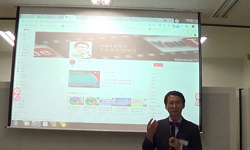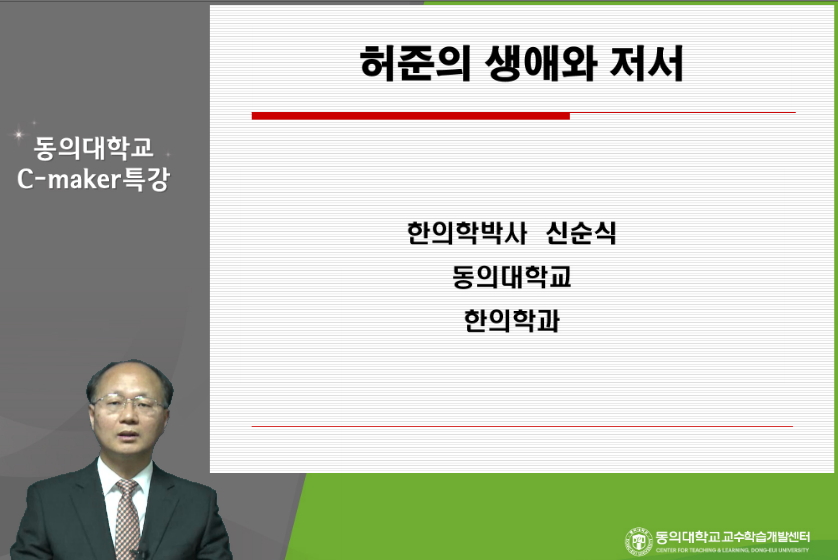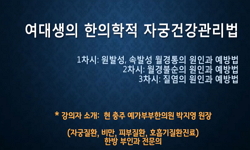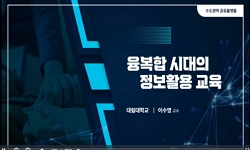본 연구는 Jung의 분석심리학적 관점에서 동의보감의 병리와 치료원리를 탐구한 연구이다. 연구 결과, 분석심리학의 핵심 개념인 대극의 원리가 동의보감을 관통하는 기본적인 철학임을 알 ...
http://chineseinput.net/에서 pinyin(병음)방식으로 중국어를 변환할 수 있습니다.
변환된 중국어를 복사하여 사용하시면 됩니다.
- 中文 을 입력하시려면 zhongwen을 입력하시고 space를누르시면됩니다.
- 北京 을 입력하시려면 beijing을 입력하시고 space를 누르시면 됩니다.
https://www.riss.kr/link?id=A108335892
- 저자
- 발행기관
- 학술지명
- 권호사항
-
발행연도
2022
-
작성언어
-
-
주제어
동의보감 ; 융 ; 분석심리 ; 한의학 ; 정신치료 ; Donguibogam ; Korean Traditional Medicine ; Psychotherapy ; Carl Jung ; Analysis
-
KDC
100
-
자료형태
학술저널
-
수록면
51-76(26쪽)
- 제공처
-
0
상세조회 -
0
다운로드
부가정보
국문 초록 (Abstract)
본 연구는 Jung의 분석심리학적 관점에서 동의보감의 병리와 치료원리를 탐구한 연구이다. 연구 결과, 분석심리학의 핵심 개념인 대극의 원리가 동의보감을 관통하는 기본적인 철학임을 알 수 있고, 동의보감에 나타난 정신치료 원리는 3가지로 구분할 수 있다. 첫째, 정신의 작용은 에너지 균형과 순환을 나타내는 소장평형(消長平衡)의 원리로 모든 우주 만물이 형태나 성격이 바뀔 뿐 에너지는 사라지지 않고 균형을 이루는, 대극의 초월과 합일을 통해 계속 순환하는 만물의 생성과 소멸의 원리이다. 둘째, 정신병리는 대극의 불균형을 극복하려는 물극필반(物極必反)의 원리로 에너지가 한쪽으로 치우쳐 불균형이 심화되면 다시 반대쪽으로 에너지가 기울게 된다는 상호작용의 원리이다. 정신병리는 불균형을 만드는 에너지의 일방성과 에너지의 상호작용의 부재 및 부조화, 들고나는 에너지의 속도 차이에 의해 초래된다. 셋째, 정신치료는 불균형에서 조화와 균형을 회복하는 것이며 치우침 없이 균형을 유지하는 중화(中和)의 원리로 설명한다. 중화는 신체뿐만 아니라 정신의 에너지 불균형을 다루는 정신치료 원리이며, 이는 마음을 다스려 양생(養生)을 돕는 음평양비(陰平陽秘)와 대극의 균형과 합일을 통해 치료적 작용을 돕는 치이권형(治以權衡)으로 구분할 수 있다. 요컨대 동의보감은 정기신(精氣神) 대극(對極)의 상호관계 속에서 신체와 정신이 조화와 균형을 이루고 생리와 병리 및 치료의 원리를 다루고 있으며, 그 치료원리는 분석심리학적 관점의 대극의 합일과 개성화 과정으로 이해할 수 있다. 이를 통해 한의학의 치료에서 분석심리학을 기초로 한 개입 가능성을 살펴볼 수 있었다.
다국어 초록 (Multilingual Abstract)
The present study reviews the pathology and treatment principles of Donguibogam from the perspective of Jung’s analysis psychology in order to explore psychotherapy principles inherent in Donguibogam. The results indicate that the principle of oppos...
The present study reviews the pathology and treatment principles of Donguibogam from the perspective of Jung’s analysis psychology in order to explore psychotherapy principles inherent in Donguibogam. The results indicate that the principle of opposing poles, a core concept of analytical psychology, is in line with Donguibogam. More specifically, three principles of psychotherapy are derived from Donguibogam. First, Sojangpyeonghyeong, a concept of the balance and circulation of energy, describes psychological functioning. Sojangpyeonghyeong, in which all things in the universe change only in forms or characteristics whereas their energy does not disappear but maintains its balance, is a principle of generation and extinction of things that circulate consistently through the unity and transcendence of two opposing poles. Second, Mulgeukpilban, a concept of overcoming the imbalance of opposing poles, accounts for psychopathology. It is a principle of interactions that, if energy is skewed to one side and its imbalance intensifies, the energy is tilted back to the other side. Psychological disorders develop if unilateral tendencies of energy create imbalance and occur from the absence and incongruity of interactions due to the confinement of energy and speed discrepancy in the ebb and flow of energy. Third, psychotherapy restores harmony and balance from imbalance, and is explained through JoongHwa, a concept of maintaining balance without bias. JoongHwa is a principle dealing with psychological as well as physical imbalances. It is categorized into two parts. One is Yinpyeongyangbi that helps protection from psychological disfunction. The other is Chiygwonhyeong, which helps therapeutic action through balance and unity of opposing poles. In summary, Donguibogam deals with the principles of physiology, pathology and treatment where the body and mind are harmonized and balanced in the mutual relationship of the Jung (精), Qi (氣) and Shin (神) polarities. The treatment principle could be interpreted as the unity and individualization of opposing poles from the perspective of analytical psychology. The findings implicate the plausibility of the psychotherapeutic application based on analytical psychology to the interventions of Korean medicine.
동일학술지(권/호) 다른 논문
-
- 한국정신분석심리상담학회
- 이세형 ( Lee Se Hyoung )
- 2022
-
- 한국정신분석심리상담학회
- 오화철 ( Oh Wha Chul )
- 2022
-
자기애 성향 내담자의 정신분석적 사례 연구: Kohut의 자기심리학을 중심으로
- 한국정신분석심리상담학회
- 민정원 ( Jeong-won Min )
- 2022
-
- 한국정신분석심리상담학회
- 이지민 ( Lee Ji-min )
- 2022




 KISS
KISS






